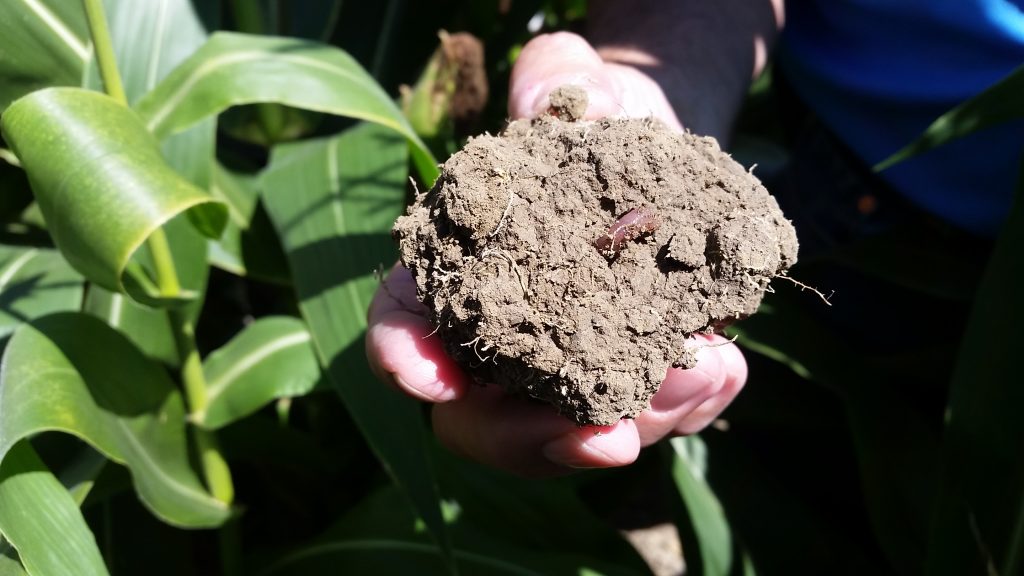Soil is at the foundation of key ecosystem services that sustain life on Earth. These essential services include the products we obtain from soil (food, fiber, building materials, medicine, clean water, and more) and the soil processes that underpin them. Soils are dynamic porous mediums that support plant growth, cycle nutrients, house an incredible diversity of soil organisms, regulate water resources, and influence the climate.
Farm productivity and sustainability in New York State are limited by two major soil health constraints: Soil compaction and loss of organic matter. These soil constraints can severely impact crop productivity, farm sustainability, and environmental quality. However, management practices can be adjusted to alleviate these problems and provide additional benefits.
By planting cover crops, using crop rotation strategies, reducing tillage, and using organic amendments (such as manure, compost, or biochar), farmers can help improve the biological, physical, and chemical functioning of the soil. These practices can build resilience to weather extremes by reducing erosion, improving water holding capacity, while also promoting nutrient retention and suppression of weeds and diseases.
Cornell’s Comprehensive Assessment of Soil Health (CASH) is a publicly available soil health test that identifies major constraints and provides a framework for effective management planning. Soil health can be measured through indicators and management practices can be adjusted to alleviate specific soil-related problems. Learn more about Cornell’s Comprehensive Assessment of Soil Health at http://soilhealth.cals.cornell.edu/.
